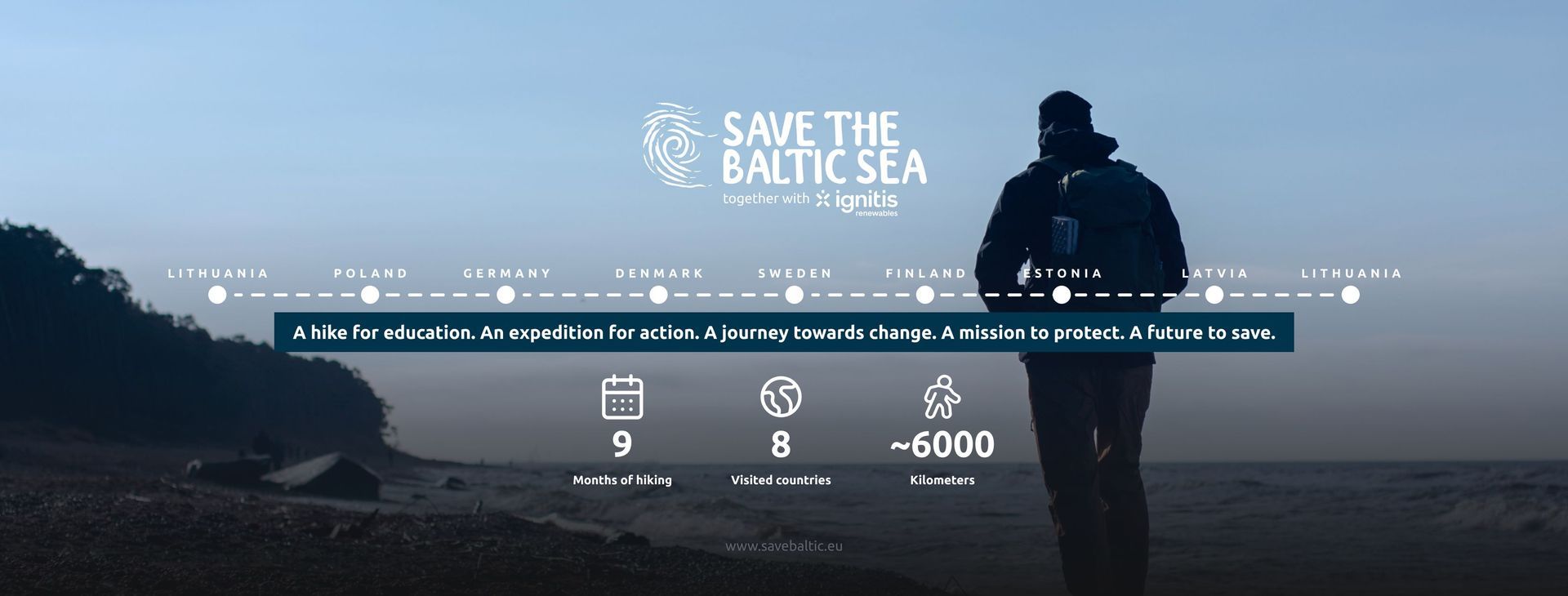CCB joined the "Save The Baltic Sea" Expedition “

12 March 2024 - An environmental hiking expedition of 10 people, 9 months and 6000 km around the Baltic has started in Lithuania, on the occasion of the country Independence Day.
The mission is to raise awareness of the Baltic Sea, to seek solutions with the communities and scientists they will meet on the expedition, and most importantly to inform people about the actions we all need to take to save our sea.
CCB - along with other organizations, science and governmental institutions, businesses and media – has joined the expedition as a formal partner for one year. The partnership will aim to:
- Disseminate information on events and initiatives jointly organized and carried out;
- Disseminate information on the project´s activities;
- Co-organize a workshop in Stockholm in June on offshore wind energy.
“The expedition aligns with the main goal of Coalition Clean Baltic (CCB), which is to promote the protection and improvement of the environment and natural resources in the Baltic Sea Region.
By informing citizens about the state of our marine ecosystems, and bringing together local communities and stakeholders, the expedition complements CCB’s activities and raises awareness for the protection of the Baltic Sea’s environment. CCB network engages people to become part of the solution instead of part of the problem and supports the expedition’s environmental campaign.” – commented Mikhail Durkin, CCB Executive Secretary.

